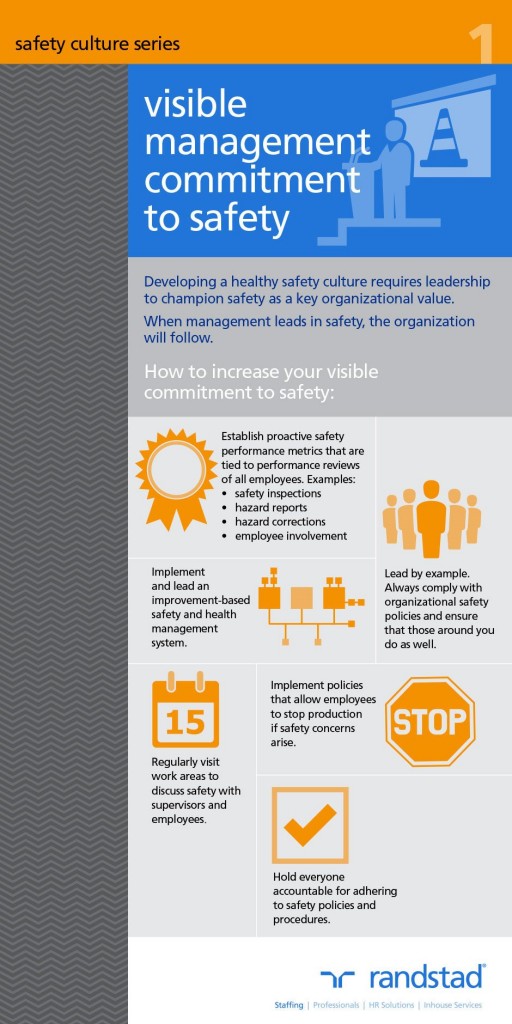When you think of safety culture, what comes to mind? Perhaps it is visions of hallway walls plastered with safety advisories, or the common “Safety First” banner that is hung high over the manufacturing or production floor. While these visual aids might make an organization appear safety-oriented, they are often not enough to build a true culture of safety.
Safety culture is defined by the shared beliefs, attitudes and practices that determine the performance of an organization’s safety and health management. As it turns out, every organization has a safety culture—whether it is good or bad, healthy or weak. Even employers with the best intentions may say they value safety in the workplace, but are unable to provide the proper resources, training and communication needed to fully engage their employees to become involved. In turn, when employers do not engage workers in the process of building a safe culture, employees may not be able to recognize an unsafe work environment or feel comfortable speaking to their managers about existing safety risks.
performance of an organization’s safety and health management. As it turns out, every organization has a safety culture—whether it is good or bad, healthy or weak. Even employers with the best intentions may say they value safety in the workplace, but are unable to provide the proper resources, training and communication needed to fully engage their employees to become involved. In turn, when employers do not engage workers in the process of building a safe culture, employees may not be able to recognize an unsafe work environment or feel comfortable speaking to their managers about existing safety risks.
It’s no question that workplace safety should be a top priority, but organizations need to keep in mind that they will see the greatest success when everyone in the workforce is driving the commitment. Here are four steps organizations can take to ensure a strong safety culture:
Lead by example
When managers show a visible commitment to safety, the workforce will follow suit. Managers should educate themselves on all organizational safety policies and ensure employees do the same. Holding everyone, including management, accountable for following all safety policies and procedures is essential to promoting a safe work environment, in addition to ensuring that backup plans are in place if safety concerns arise.
Establish trust between employees and management
If trust between employees and management does not exist, a successful safety culture cannot exist either. Managers can strengthen communication lines by establishing an open door policy that encourages employees to voice their opinions about safety concerns. In turn, employees can hold their managers accountable for safety protocols. By making safety communication a two-way dialogue, managers and employees can foster a respectful working environment with improved morale and increased productivity.
Hire employees with an eye for safety
A safety-minded workforce with a keen understanding for safety protocols helps curb potential hazards before they occur, allowing employees to take responsibility for their own safety and the safety of those around them. Hiring managers should ensure new hires become familiar with Occupational Safety and Health Administration (OSHA) requirements. Developing interactive and engaging training sessions to guide new hire learning is also helpful.
Encourage company-wide participation
Managers should not be the only ones leading the workforce toward a strong safety culture. They can involve employees by listening to their input and including them in order to determine safety solutions. Also consider establishing a safety committee that gives employees the opportunity to showcase their leadership and knowledge of safety procedures, and provide rewards and recognition for employees to go above and beyond. It is far easier to envision a healthy safety culture when the entire workforce is committed to success.

Corey Berghoefer, senior vice president of risk management and insurance for Randstad U.S., authored this post.


 />i
/>i

